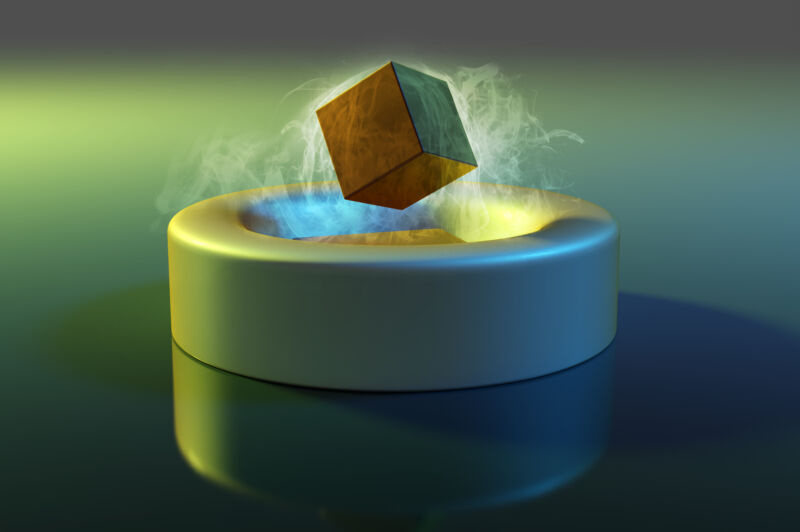Room-temperature superconducting claim is retracted

Enlarge / Illustration of magnetic levitation using a high-temperature ceramic superconductor.
A paper that claimed to provide the first evidence of superconductivity at room temperatures has been retracted by the journal Nature, even as the paper's authors say they still have confidence in the results. The decision appears to come down to an issue of the experiment's questionable controls.
High-temperature superconductivity has made a lot of progress due to the use of hydrogen-rich chemicals at extreme pressures, which can force the hydrogen into chemical structures that would otherwise have empty space. Several papers have gotten hydrogen-rich chemicals to superconduct at temperatures that could be reached using dry ice.
The room-temperature report followed a similar path, using intense pressure to force hydrogen to combine with a new mix of chemicals and reach record temperatures-in this case, above the freezing point of water, a major milestone. The pressures involved mean the material wouldn't be useful for real-world applications but could potentially point the way toward other chemicals that could.